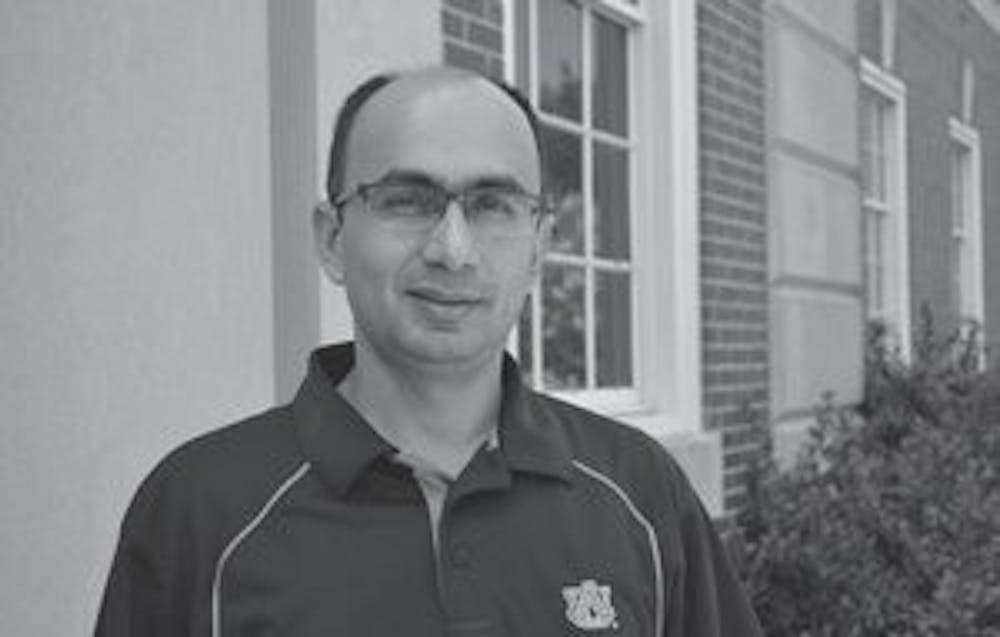Sushil Adhikari, assistant professor of biosystems engineering, recently received a $335,748 grant from the National Science Foundation to conduct bioenergy research, specifically Adhikari’s speciality, the conversion of biomass into biofuels and products, for three summers.
Adhikari intends to set up a program titled Research Experiences for Undergraduates (REU), which will allow 10 students from limited research universities each summer to spend 10 weeks on campus studying bioenergy.
Adhikari agreed to tell the Plainsman more about what he intends to do with his generous grant.
How will the students be chosen for entry into your research site?
The primary focus of our recruitment efforts will be undergraduate students from historically black colleges and universities and community colleges in the southeastern United States that are interested in pursuing graduate studies in biofuels and bioproducts.
We will post advertisements at regional and national scientific conferences and distribute emails to our colleagues at different institutions. In addition to that, information about the REU program will be posted on a web page that will be developed for this project. The web page will provide an REU program overview, information on research topics and faculty mentors, application procedures and materials, and professional development and social activities.
Any students that are interested in the REU program are encouraged to submit their application materials. They will be asked to provide a two-page application form, a one-page resume, a letter describing their career goals and educational and research experiences, copies of their undergraduate transcripts, two letters of recommendation, and a statement of reasons for wanting to participate in the REU program. Relevant courses, strong writing skills, good GPAs, and strong recommendation letters from teachers and scientists will serve as indicators of potential success in this program.
Participants who are at an earlier stage in their college experience will be given a high priority because junior- and senior- level undergraduates have typically already committed to a major either in the fields of science or engineering.
It is important to understand the main objective of this project. Our ultimate goal of this project is to lead a greater number of students pursuing graduate studies. We hope to do this by introducing participants to different research techniques, scientific hypotheses testing and experimental design, data collection, analysis, and presentation in an engaging, interdisciplinary atmosphere that fosters a strong interest in the field of bioenergy.
I understand that your area of expertise is biomass gasification. What are the main crops used in this process?
Just to clarify about my expertise, I worked on thermochemical conversion of biomass to liquid and gaseous fuels that includes gasification, pyrolysis and reforming processes.
In this project, we will be focusing primarily woody biomass, or pine. As you might know, two-thirds of Alabama is covered with forestry, and our primary crop is forest biomass.
In addition to forest biomass, we will focus on other energy crops such as switchgrass or agricultural residues such as pecan shells, peanut hulls and so on. We do not want use any food crops and we would like to stay away from the “food vs fuel” debate.
Are the crops utilized in this native to or grown heavily in Alabama?
Yes. Woody biomass is widely available in Alabama, and pine is the primary species grown here in the South.
Do you have any collaboration with companies/organizations that sell or develop products to utilize clean-burning fuels?
Yes. Through this and other ongoing projects, we have a number of industrial partners such as Rentech, Coskata, KioR, the Southern Company, Alabama Power, Alabama Municipal Electric Authority, Gas Technology Institute, Genera, the National Carbon Capture Center, and PureVision.
After the three summers are completed, do you intend to renew the grant or move onto other projects?
I hope to renew this project after three years but my goal right now is to make this project fun and memorable for our REU fellows. Auburn University through the Center for Bioenergy and Bioproducts have invested heavily in infrastructure that can be used to train our young generation needed to fully develop and sustain biobased economy.
Is this your first major grant?
Yes, and no. I have been fortunate enough to get involved in number of grants that were funded through the U.S. Department of Energy, the U.S. Department of Agriculture and the National Science Foundation, but this is the first major grant targeted to train undergraduate students in bioenergy and bioproducts to this magnitude.
Do you have any faculty members or students that will be assisting you in this program?
This is a collaborative project, and we will have twelve faculty mentors participating in this project from six departments representing three colleges — the college of agriculture, the Samuel Ginn college of engineering and the college of science and mathematics—and the school of forestry and wildlife sciences.
The Center for Bioenergy and Bioproducts will also allow access to its infrastructure for research, and Dr. Margaret Marshall from the office of University writing will help REU fellows with technical communication skills. Dr. Raj Chaudhury of the Biggio Center will help in evaluating the effectiveness of the project.
One thing that I would like to emphasize is that the support and encouragement from our colleagues is key in getting a big grant like this. The department head of biosystems engineering, Dr. Steve Taylor; the department chair of chemical engineering, Dr. Mario Eden; and the dean of Samuel Ginn college of engineering, Dr. Christopher Roberts are the ones who encouraged me to write this grant, and I am thankful for their support.
Do you like this story? The Plainsman doesn't accept money from tuition or student fees, and we don't charge a subscription fee. But you can donate to support The Plainsman.





